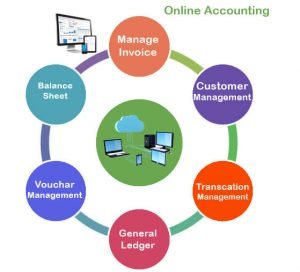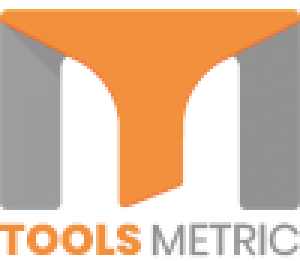
It cannot be argued that ERP accounting software is extremely important in order to improve business and work efficiency, for all types of businesses and organizations. When it comes to accounting software, most of these tools consist of modules like journals, general ledger, payroll, trial balance, accounts payable and accounts receivable. Hence, these tools can be used for all types of accounting activities, right from simple accountancy tasks to regulating the entire financial transactions of large organizations and businesses.
The main aim of opting for an ERP accounting software is to simplify an accountant’s life as these tools come with flexible features. However, for the tool to be able to achieve this, it is very important that businesses find the perfect tool that matches their requirement. In this article, we will delve into the key features every accounting software must have.
But, first you need to understand the benefits of investing in such software:
Benefits of Investing in an Accounting Software
Accounting software solutions can help businesses in many ways, and today we’ll show you the solid reasons why you should start using it to boost your business.
Your selection task is made simpler as accounting software packages are designed for particular industries, such as medical practice, construction, consulting practice, etc.
One of the major advantages is that you don’t need to be an expert in finance to use these tools as the interface of most tools is extremely user-friendly and you use the tool effectively with practice and basic knowledge.
If you are still on the fence, read on to learn about the main benefits of using accounting software.
1. Saving Time
When you select a quality accounting software system it can really help you save a lot of time compared to manual bookkeeping. Moreover, these tools can also process front end documents and back end transactions.
2. Continuous Financial Monitoring
When a company conducts manual accounting, it is a common practice to carry out most of the work at the end of the financial year, as the records are prepared for administration and tax assessment purposes. However, with automated bookkeeping, you will be able to create and maintain financial records throughout the year, while retrieving an in-depth report whenever required.
This helps companies to continuously monitor their financial records, which will enable them to resolve issues earlier before they turn into bigger problems.
3. Management of Cash Flow
With accounting software, you can record and track your payables and receivables. This enables you to know your current as well as future cash flow status.
For example, you can enter your bills as well as customer invoices, and their due dates, and get insightful reports that will tell you if your receivables are enough to pay your future bills.
Plus, you can keep records of invoices and bills which can help you to avoid late fees and overdraft charges.

Top 10 Key Features Every Accounting Software Must Have
Billing, ledger, account debit and credits are the core features of any accounting & finance software but besides these core features, there are some key features that every accounting & finance software must own, some of them are enlisted below. Here are the top 10 key features every accounting software must have:
1. Accounts Payable
a. Vendor Records Management:
The first rule of business, be it any size and in any industry, is to know your supplier. A good accounting software includes custom vendor fields and quick vendor creation with records cloning!
b. Payment Date Calculation
Would you rather earn interest on your cash or have your vendors earn it? Automatic payment date calculation uses vendor terms data to help you hold payments until required.
c. Suspicious Payment Alerts
Consecutive payments to the same vendor, on the same date, in the same amount? Could be a duplicate! Alerts for unusual payment trends help catch these mistakes.
d. Advance Payment Scheduling
Have a habit of forgetting the due date of recurring payments? With good accounting software, you can easily schedule payments in advance and focus your energy on expanding your business!
e. AP Document Attachment
Internal documents like purchase orders aren’t the only ones useful for substantiating AP payments. Attaching vendor invoices fosters transparency and accountability.
2. Accounts Receivable & Billing
a) Effective Invoice Creation
There are a million and one possible invoice layouts and it can often be confusing to decide which one suits your business. With accounting software, you can seek flexibility to present invoices with just the fields you need for shipping, billing, terms, item, and pricing info.
b) Balance-Forward
With your growing business, it can get difficult to keep track of past balances and payments. A good accounting software will provide the balance forward functionality, which lets you easily move old balances into new invoices!
c) Sales Tax Calculation
Different states have different laws when it comes to sales tax. As your business expands to new locations, keeping a track of these will be a task. But, don’t stress. Your accounting software should be able to ease the tax game for you, using its automation calculation tools.
d) Invoice Duplication
The same customer ordered the same product as last week? Why not just copy the invoice and make the necessary change or two instead of re-entering every last invoice field?
e) RMA Support
Returned orders can wreak havoc on your books. Normalize your returns management record-keeping with built-in features designed to support best practices.
3. Budgeting & Forecasting
a) What if Scenarios
When the crystal ball isn’t perfectly clear, what-if scenario support allows you to apply changes to revenue and expense drivers and consider the potential financial impact.
b) Versioning & Approvals
Is there a bit of back and forth in your budgeting process? Allow for collaboration, approvals, and versioning to create budgets everyone can live with.
4. Inventory
a) Serial Number & Lot Tracking
Good accounting software will give you the ability to not just recognize the type of item, but also the specific unit or batch. This will help you when it comes to warranty tracking, avoiding unnecessary recall costs, etc.
b) Price Management
Setting pricing on just a handful of products is straightforward. Managing prices on a large number of items with volume or customer-based discounting require more sophisticated controls.
c) Landed Costs
It’s not just the cost of your products and supplies that matters. It’s also the cost to acquire and store them. Landed costs help you understand product profitability more accurately.
5. Payroll
a) Time & Attendance
Does how many hours employees work affect how much you’re going to pay them? Integrated time tracking features reduce the time associated with hourly-based paychecks.
b) Employee Self-Service
Employee’s keep wanting to check on their vacation days or benefits. Give the power to the people and save yourself some time on common payroll questions.
c) Prevailing Wage & Certified Payroll
Government contractors often need to submit payroll certification reports to verify compliance with labor standards. More capable payroll programs automate the creation of these reports.
d) Incentives
Incentives! They’re great to get employees performing, but pain for payroll administrators. Ease the burden with custom support features for incentive calculation and application.
6. Bonus: Security
a) Role-Based Authentication & User Privileges
Lay down the law on who can do what, when and under which conditions. Authenticating users and granting privileges as required is a cornerstone of good accounting application security.
b) Encryption
Did you know that storing unencrypted credit card data is forbidden by PCI standards? Protect your customers’ data and then display on your website that you’ve done so with logos from compliance organizations, increasing trust among your users.
c) Locked Reporting Periods
Protect the past from the future. In order to prevent problems with accounting regularities, it is recommended to lock down and close accounting periods regularly.
In conclusion, these are the key features we recommend every accounting and finance software must have. We recommend that you should look out for these features before choosing the best ERP accounting software for your business.






I think record management invoice duplication and remainders, security are some of these are very crucial parts of accounting and need to be handled with the best solution we have. And having the accounting software is what one can afford and get the utmost benefit for his/her business. Thanks for sharing the valuable information. Really got quality knowledge.
I just want to say I am just newbie to blogging and truly enjoyed you’re blog. Very likely I’m likely to bookmark your blog post . You really come with exceptional posts. Bless you for revealing your website.